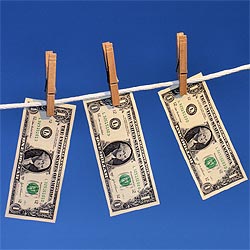Compliance
UK Residences Must Not Be Havens For Laundered Foreign Cash - Cameron

UK prime minister used his current trip to Asia to call for a clampdown on purchases by foreigners of UK properties with "laundered" cash.
The UK has opened a new front in the battle against money
laundering by stating that residential properties must not be
bought in the UK with stolen or laundered funds.
Those were the words of prime minister David Cameron who was
speaking earlier today in Singapore during a trip to forge
business and diplomatic links between the UK and Asian
jurisdictions.
Cameron said he would expose the use of “anonymous shell
companies to buy UK properties. The prime minister has already
pushed for a public register of beneficial ownership of companies
and other structures, prompting an outcry from certain offshore
financial centres such as the Cayman Islands and British Virgin
Islands, amid concerns about the impact on legitimate financial
privacy.
The UK, along with many other major economic nations, has made
clampdown on money laundering a policy priority, both as part of
moves to counter terrorism finance and also to clamp down on
illicit money flows from tax evaders. The reference to purchase
of UK properties, such as luxury homes in London, also shows how
the price-boosting impact of such purchases remains a sensitive
political issue in the UK. The government has already taken steps
to limit some of the tax breaks that foreigners obtain through
purchasing real estate. (It has, for example, extended capital
gains tax to non-residents selling UK property.)
In his speech, Cameron said: "Because when you have companies whose ownership isn’t known you allow a shroud of secrecy behind which people can do bad things, sometimes terrible things, with no accountability. The corrupt, the criminals, the money-launderers – they need anonymous company structures to hide, to move and to access their money. So by lifting off this shroud of secrecy we can expose wrongdoing and dissuade others from going down the same path."
"Now this is a challenge for everyone – including ASEAN, including Britain. We too must get our house in order – and we are. And that is why the UK government has legislated to ensure that from next year, Britain will become the first major country to establish a publicly accessible central registry showing who really owns and controls all British companies," the prime minister continued. "Now with £122 billion of property in England and Wales owned by offshore companies we know that some high-value properties – particularly in London – are being bought by people overseas through anonymous shell companies, some of them with plundered or laundered cash. Just last week, there were allegations of links between a former Kazakh secret police chief and a London property portfolio worth nearly £150 million."
"I have asked the Land Registry to publish this autumn data on which foreign companies own which land and property titles in England and Wales. This will apply to around 100,000 titles held on the Land Register and will show for the first time the full set of titles owned by foreign companies," he added.
And we will also look carefully at the case for insisting that any non-UK company wishing to bid on a contract with the UK government should also publically state who really owns it using the government’s buying power as a if you like, battering ram for greater corporate transparency around the world.
As reported by the Times (of London) newspaper recently, the
National Crime Agency body in the UK has warned of how it is
worried by the number of homes registered to complex offshore
corporations, some of which have been purchased with illicit
funds. Donald Troon of the NCA reportedly said the inflows may be
adding to high prices in London.
According to the KnowYourCountry website that tracks
money laundering issues globally, the UK is far from having a
clean bill of health. "The United Kingdom plays a leading role in
European and world finance and remains attractive to money
launderers because of the size, sophistication, and reputation of
its financial markets. Although narcotics are still a major
source of illegal proceeds for money laundering, the proceeds of
other offenses, such as financial fraud and the smuggling of
people and goods, have become increasingly important. The past
few years have seen an increase in the movement of cash via the
non-bank financial system as banks and mainstream financial
institutions have tightened their controls and increased their
vigilance. Money exchanges; cash smugglers (into and out of the
UK); and traditional gatekeepers, including lawyers and
accountants, are used to move and launder criminal proceeds. Also
on the rise are credit/debit card fraud, internet fraud, and the
purchase of high value assets to disguise illicit proceeds.
Underground alternative remittance systems such as hawala are
also common," it said.